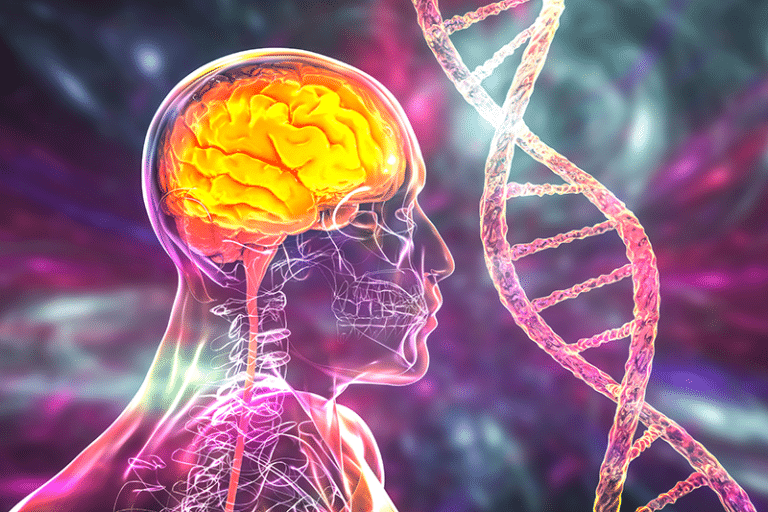
Do you or someone you know suffer from hereditary neuropathies? Understanding this condition can help you better manage and cope with its effects.
Hereditary neuropathies are genetic disorders affecting the peripheral nerves, resulting in symptoms such as muscle weakness, numbness, and pain. These conditions can significantly impact a person’s quality of life and require specialized care.
At Momentum Medical, we aim to bridge the gap between medical knowledge and patient understanding regarding hereditary neuropathies. Our team of experts is committed to providing accurate information, resources, and support to help individuals with hereditary neuropathies and their families navigate this complex condition.
Whether you are seeking information on the different types of hereditary neuropathies, treatment options, or ways to manage symptoms, we are here to help. Let us guide you on your journey to better understanding and managing hereditary neuropathies.
There are several types of hereditary neuropathies, each with its own set of symptoms and progression. They fall into four major categories:
Also known as Charcot-Marie-Tooth Disease, it primarily affects the motor nerves that control muscle movement.
Symptoms include muscle weakness and atrophy, particularly in the hands and feet. HMSN can also cause sensory abnormalities, such as numbness and tingling. There are three main types of: CMT1, CMT2, and CMT3.
This type of hereditary neuropathy primarily affects the sensory nerves, leading to abnormalities in sensation. Individuals with HSN may experience numbness, tingling, or loss of sensation in the hands and feet. They may also have difficulty sensing pain or temperature changes.
Also known as distal hereditary motor neuropathy, this group of inherited neurological disorders primarily affects the motor nerves responsible for controlling muscle movement.
The critical characteristics of HMN are:
HSAN refers to a group of rare genetic disorders characterized by sensory and autonomic nerve function loss.
These disorders predominantly affect the peripheral sensory and autonomic neurons, which are responsible for transmitting sensations like pain, temperature, and touch and regulating autonomic functions such as blood pressure, heart rate, and sweating.
Understanding the genetic underpinnings of hereditary neuropathies is crucial for diagnosis, treatment, and prevention. Researchers have identified several genes that play a role in hereditary neuropathies, providing valuable insights into the underlying mechanisms and potential therapeutic targets.
By studying the genetic basis of these disorders, scientists can develop more effective treatments and genetic testing methods, ultimately improving the lives of individuals affected by hereditary neuropathies.
There are several different clinical presentations of hereditary neuropathies, each with its own set of symptoms and characteristics.
Let’s take a closer look at some of them:
A proper diagnosis of hereditary neuropathies involves:
The evaluation aims to identify the specific genetic mutation responsible for the neuropathy and assess the severity and progression of the condition.
Accurate diagnosis allows healthcare professionals to provide appropriate treatment strategies, genetic counseling, and support for individuals and families affected by hereditary neuropathies.
Treatment of hereditary neuropathies may involve managing symptoms such as pain, weakness, and numbness through medications.
Here’s what can be done to treat and manage hereditary neuropathy:
Living a fulfilling life with hereditary neuropathy can be challenging. Still, it is certainly possible with the right mindset and support.
By focusing on self-care, managing symptoms, and seeking appropriate medical guidance, individuals with hereditary neuropathy can lead fulfilling lives. This may include regular exercise, adopting a healthy diet, managing stress levels, and finding support from others facing similar challenges.
It is also essential to educate oneself about the condition and stay proactive in managing symptoms to minimize their impact on daily life. Individuals with hereditary neuropathy can overcome obstacles and find joy and fulfillment in their lives with determination and a positive outlook.
At Momentum Medical, we understand the challenges of living with a condition like hereditary neuropathy. We are committed to helping you find the support and resources you need. Our knowledgeable medical professionals will work closely with you to develop a personalized treatment plan that best meets your needs.
We also provide emotional support and guidance to individuals and families affected by hereditary neuropathies, offering compassionate advice for coping with the physical and emotional effects of the condition. With our help, you can face the road ahead with confidence and hope.
To learn more about how we can help you manage hereditary neuropathy or to schedule a consultation, don’t hesitate to contact us today.
Serving Volusia, Flagler, Orange, Osceola, Hillsborough, Pasco, Pinellas, and Seminole county patients with back pain conditions, sports injury, work injury, headaches, lower back pain, auto accident injuries, neck pain and more.
Our staff can accommodate Spanish, French and Russian speaking patients. All other languages with enough notice we can schedule a translator.
Todas nuestras localizaciones tienen hablantes de español en el personal.
© 2024 Momentum Medical